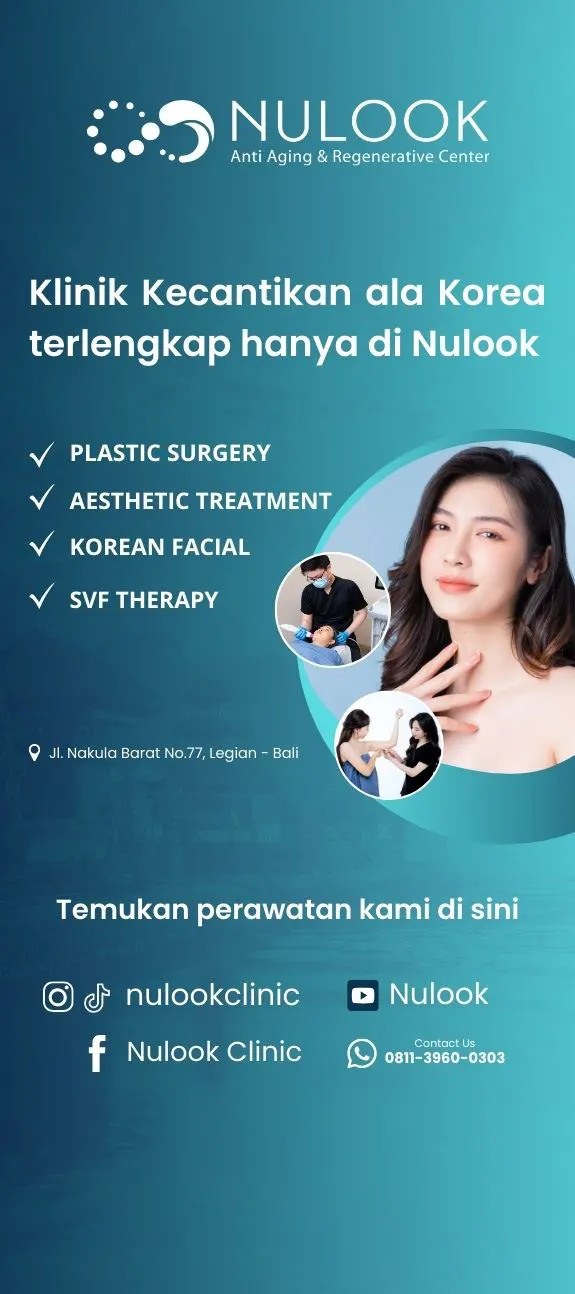10 Restrictions After a Nose Plastic Surgery You Must Avoid
Author: Nulook ExpertiseReview by: -Rhinoplasty, or nose plastic surgery, is a medical procedure to improve the shape, function, or both of a person's nose. This procedure is a solution for those who want to enhance the aesthetics of their nose, address breathing problems due to structural abnormalities, or correct congenital defects.
However, it is important to understand that there are several restrictions after nose plastic surgery that must be observed to ensure smooth recovery and optimal results.
Let's learn more about this nose plastic surgery, including the restrictions that need to be avoided.
What is Nose Plastic Surgery?
Nose plastic surgery or rhinoplasty is a surgical procedure aimed at changing the structure of the nose to improve both aesthetic and functional problems. Common goals of rhinoplasty include correcting disproportionate or asymmetrical nose shapes, reducing the size of an overly large nose, and addressing breathing problems caused by conditions like enlarged deviated septum.
By undergoing rhinoplasty, you not only achieve a nose that matches your aesthetic desires but also improve breathing function and overall quality of life.
Read Also: 4 How To Sharpen Your Nose To Make It More Ideal
10 Restrictions After Nose Plastic Surgery
After undergoing rhinoplasty, there are several restrictions you need to observe to ensure smooth healing and optimal surgery results. Here are some common restrictions after nose plastic surgery:
1. Avoid Direct Contact with the Nose
After nose surgery, it is very important to avoid touching or rubbing the nose directly, including cleaning the nostrils with fingers. Direct contact can interfere with the healing process of the still-sensitive tissues and trigger infections.
2. Avoid Heavy Physical Activities
In the first few weeks after nose surgery, avoiding heavy physical activities is very important to ensure a smooth healing process. Intense physical activities like weight lifting, heavy exercise, or other activities that increase blood pressure can increase the risk of bleeding in the newly operated nose area.
3. Do Not Wear Glasses or Sunglasses
After nose surgery, avoid wearing glasses or sunglasses that press on the nose, as this can interfere with the healing process. The pressure from the glasses frame can affect the shape of the newly operated nose and cause discomfort or even deformity.
4. Avoid Direct Sun Exposure
Direct sun exposure can slow down the healing process and increase the risk of complications on the skin around the newly operated nose. UV rays can cause inflammation, hyperpigmentation, and even permanent damage to the still-healing skin tissues.
5. Consume Recommended Foods and Drinks
After surgery, the body requires the right nutrients to support the healing process. Doctors usually provide specific dietary guidelines to follow. Foods rich in protein, vitamin C, and antioxidants are highly recommended as they help speed up tissue regeneration and strengthen the immune system.
Read Also: 9 Benefits of Nose Thread Lift for the Ideal Nose
6. Follow Post-Operative Care Instructions
Each doctor usually provides specific post-operative care guidelines, and it is very important to follow all these instructions carefully. These instructions may include taking prescribed medications on time, keeping the operated area clean, and avoiding certain activities that can affect the surgery results.
7. Avoid Washing with Water
After surgery, your nose will be protected with a cast for at least one week. It is very important to keep the cast dry to ensure optimal healing. Avoid washing or cleaning the face with water directly and make sure no water touches the nose area while bathing.
8. Sleep on Your Side or Stomach
After nose surgery, it is important to protect the nose from pressure while sleeping. Avoid sleeping on your side or stomach to prevent excessive pressure on the still-healing nose.
9. Wearing Makeup
Avoid using makeup on the nose area until the wound is fully healed, usually a few weeks after surgery. Wearing makeup on an unhealed wound can increase the risk of infection and slow down the healing process.
10. Bending Your Head for a Long Time
Avoid bending your head for a long time after nose plastic surgery. This position can increase blood pressure in the head and nose, potentially disrupting the healing process of the surgical wound.
Read Also: 4 Types of Nose Implants
Rhinoplasty is a surgical procedure that can provide many benefits, but it also requires extra attention during the recovery period. By adhering to the restrictions after nose surgery and following post-operative care instructions, you can help ensure a smooth healing process and satisfactory surgery results.
By understanding information about rhinoplasty, you can be more prepared and know what to expect after undergoing surgery. If you want to experience a comprehensive facial transformation, nose surgery in Bali at Nulook can be the answer.
Our expert team will design a surgical procedure that suits your overall facial enhancement needs and boosts your confidence. Contact Nulook today for a consultation and let us turn your beauty dreams into reality!
Sumber:
- https://www.ncbi.nlm.nih.gov/books/NBK558970/
- https://www.drtravistollefson.com/8-things-to-avoid-after-rhinoplasty/


